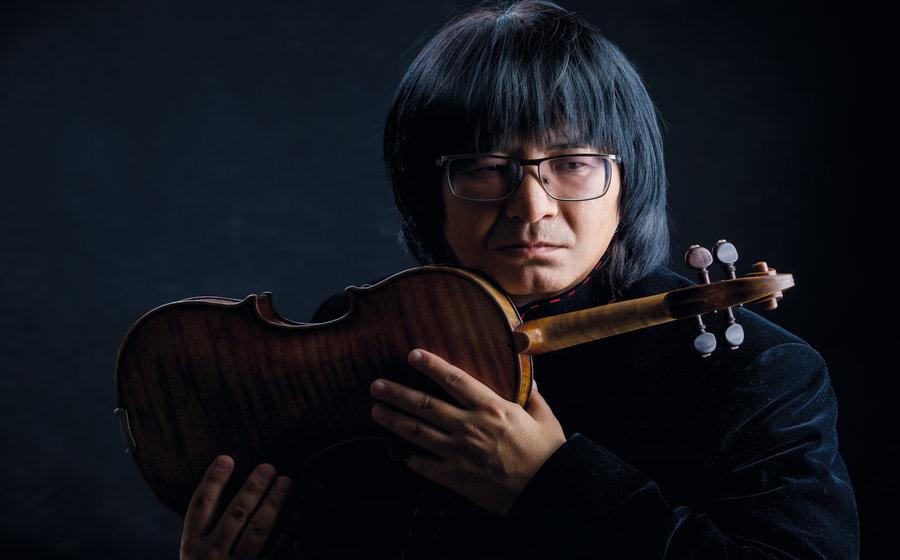This is an intriguing concert: the first ever UK tour by an Indian symphony orchestra. Of course, India has a rich tradition of indigenous music, and Bollywood does use western classical music for its epics (but ironically tends to use European orchestras). All of this is explained to us in a preconcert talk by the associate music director of the Symphony Orchestra of India, Zane Dalal, and two of the musicians.
They explain that the orchestra is only sixteen years old, and was established in Mumbai by largely Russian Conservatoire trained musicians under the direction of today’s violin soloist, Marat Bisengaliev, who was Moscow trained. There was at the time no classical music education in India, but the orchestra’s players are teaching a new generation of classical musicians in Mumbai. Currently, there are only fourteen Indian players out of ninety-two, but they hope to add many more in future.
Today’s concert is conducted by Martyn Brabbins, the current music director of English National Opera, but well known to Scottish audiences as he spent ten years as conductor of the BBC Scottish Symphony Orchestra. The concert opens with the lovely melodic Oberon Overture by Weber. This quickly shows that the orchestra has a very accomplished musical standard and very good individual players, in particular the orchestra leader and the principal clarinet player, who develop the central melody.
The concert continues with one of the best known of all violin concertos, the Bruch, which was at the top of Classic FM’s list for five years. It is played by Bisangaliev, who is an international violin star and in demand all over the world, has won many competitions, and been recorded many times. The Bruch concerto was first performed in today’s final form after six rewrites, and advice from the greatest violinist of the nineteenth century, Josef Joachim.
Bruch foolishly sold the rights to the concerto cheaply early on, and never wrote anything as good again, dying in poverty in 1920. However, he left behind one of the most beautiful works in classical music, and today’s soloist does it justice, playing with great passion but also delicacy. Brabbins is very much in command of the sixty-strong orchestra, and they are in harmony with the soloist.
The final work in this concert is Rimsky-Korsakov’s great symphonic suite, Scheherazade, which somehow seems appropriate for this orchestra from the east! Scheherazade was a young bride of a Sultan who normally executed his wives after one night, but in her case, she told him 1001 tales from the Arabian Nights, and he was so fascinated he kept her alive in order to hear the next story.
Now, Rimsky-Korsakov never did literal presentations of the tales, but in the mighty brass opening it’s clear he is referring to the power of the Sultan. This is followed by lovely violin solos from the orchestra leader that illustrate Scheherazade, and these two themes recur throughout the work until she wins in the end. In between, there is great colour and excitement, and excellent solos from the woodwind players.
The orchestra as a whole responded well to Brabbins direction, and prove they are of a comparable standard to European orchestras. The very decent Sunday afternoon audience give them a warm response, and we leave pleased with the knowledge that classical music is well and growing in the second most populous nation on the planet.
